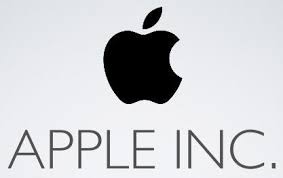The US Department of Justice (DOJ) and some states have filed an antitrust lawsuit against Apple Inc, over allegation that its devices and software are a monopoly that gives it vast profits at the expense of customers.
News reports late Thursday indicated that the DOJ and 16 state and district Attorneys-General, accused Apple of driving up prices for consumers and developers at the expense of making users more reliant on its phones.
The parties further alleged that Apple “selectively” imposes contractual restrictions on developers and withholds critical ways of accessing the phone as a way to prevent competition from arising, according to the release.
“Apple exercises its monopoly power to extract more money from consumers, developers, content creators, artists, publishers, small businesses, and merchants, among others,” the DOJ wrote.
The government points to several different ways that Apple has allegedly illegally maintained its monopoly as including disrupting “super apps” that encompass many different programs and could degrade “iOS stickiness” by making it easier for iPhone users to switch to competing devices; and blocking cloud-streaming apps for things like video games that would lower the need for more expensive hardware.
Others are, suppressing the quality of messaging between the iPhone and competing platforms like Android; limiting the functionality of third-party smartwatches with its iPhones and making it harder for Apple Watch users to switch from the iPhone due to compatibility issues; and blocking third-party developers from creating competing digital wallets with tap-to-pay functionality for the iPhone.
Commenting on the legal action in a statement, DOJ Antitrust Division Chief, Jonathan Kanter, said: “For years, Apple responded to competitive threats by imposing a series of ‘Whac-A-Mole’ contractual rules and restrictions that have allowed Apple to extract higher prices from consumers, impose higher fees on developers and creators, and to throttle competitive alternatives from rival technologies.”
The case is being filed in the US District Court for the District of New Jersey. Attorneys general from New Jersey, Arizona, California, Connecticut, Maine, Michigan, Minnesota, New Hampshire, New York, North Dakota, Oklahoma, Oregon, Tennessee, Vermont, Wisconsin, and the District of Columbia joined the DOJ in the complaint.
The enforcers are asking the court to stop Apple from “using its control of app distribution to undermine cross-platform technologies such as super apps and cloud streaming apps,” prevent it from “using private APIs to undermine crossplatform technologies like messaging, smartwatches, and digital wallets,” and keep it from “using the terms and conditions of its contracts with developers, accessory makers, consumers, or others to obtain, maintain, extend, or entrench a monopoly.”
They also ask the court for any other relief needed to restore competition. On a background call with reporters, DOJ officials would not address if they would seek to break up Apple if it wins at the liability stage. They said any relief would need to be tied to what the court ultimately finds Apple to be liable for.
Also, at a press conference on Thursday announcing the lawsuit, DOJ Deputy Attorney General, Lisa Monaco said Apple had maintained “a chokehold on competition” and “smothered an entire industry” through its shift from “revolutionizing the smartphone market to stalling its advancement.”
Kanter added that Apple was a “significant beneficiary” of the DOJ’s suit against Microsoft over 20 years ago, and this case aims “to protect competition and innovation for the next generation of technology.”
US Attorney General Merrick Garland acknowledged the resource imbalance the government is up against, facing a company worth trillions of dollars.
He said: “When you have an institution with a lot of resources that, in our view, is harming the American economy and the American people, it’s important for us to allocate our resources to protect the American people,” Garland said. “And that is certainly the case where individual Americans have no ability to protect themselves.”
In a statement, Apple spokesperson, Fred Sainz said the lawsuit “threatens who we are and the principles that set Apple products apart in fiercely competitive markets. If successful, it would hinder our ability to create the kind of technology people expect from Apple — where hardware, software, and services intersect.
“It would also set a dangerous precedent, empowering government to take a heavy hand in designing people’s technology. We believe this lawsuit is wrong on the facts and the law, and we will vigorously defend against it”, Sainz added.






